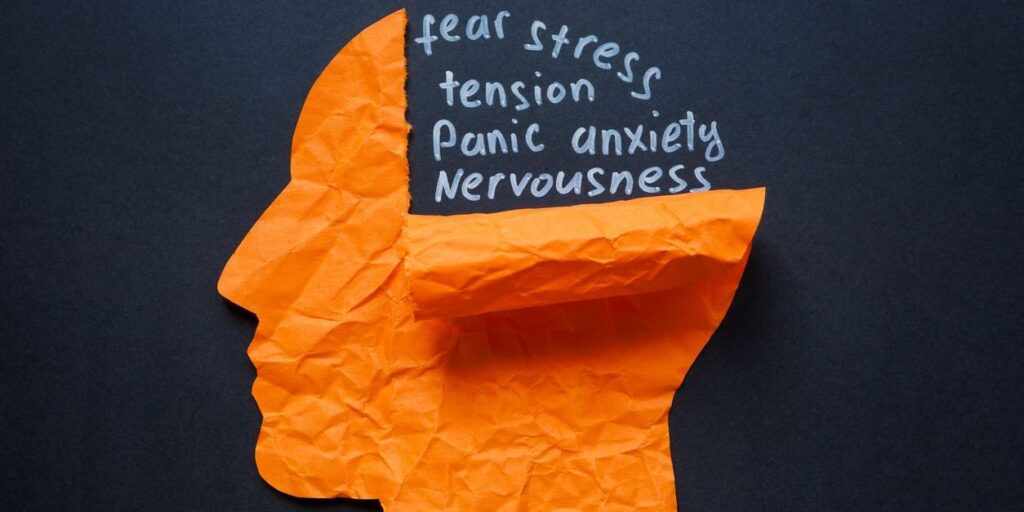Obsessive-compulsive disorder (OCD) is widely misunderstood. People often use the term OCD in daily conversation to describe their preference for order and cleanliness. They may say something like, “I’m totally OCD about that,” when referring to a small quirk or pet peeve they have related to organizing things in their lives.
That’s not what real OCD is, at all. Obsessions and compulsions are far more than preferences, pet peeves, or a personal choice to keep things neat and tidy.
The truth is that OCD is a complex mental health disorder that can severely interfere with daily life, and the casual use of the term OCD minimizes our understanding of the severe disruption it causes in the lives of people with a clinical OCD diagnosis. Here’s how mental health professionals define OCD:
A disorder characterized by unwanted, recurring thoughts – obsessions – that provoke time-consuming actions or thoughts – compulsions – a person feels driven to perform in order to minimize the negative emotions triggered by the unwanted recurring thoughts.
At Crownview Psychiatric Institute, we focus on creating an empathetic, compassionate atmosphere that promotes healing and growth. With innovative treatments and intuitive, skilled, and empathetic clinicians, we can help people diagnosed with obsessive-compulsive disorder start on the path to healing and recovery.
Effective, Evidence-Based Treatment for OCD
Upon intake and admission to a Crownview Psychiatric Institute treatment program, our clinical staff administers a comprehensive psychiatric assessment to confirm the accuracy of your diagnosis. Next, we take the time to learn all about you, including your treatment goals and your big-picture goals in life.
Once we get an idea who you are and what you want out of treatment, we use principles established by our unique, innovate approach – called the Unified Protocol for treating emotional disorders – we design a plan to help you:
- Understand your obsessions and compulsions.
- Develop the ability to identify situations, thoughts, and/or feelings that trigger obsessive thoughts and compulsive behaviors.
- Learn and practice practical strategies and skills to manage the disruptive patterns of thought and behavior associated with obsessions and compulsions.
Evidence shows that the most effective approach to treating people diagnosed with obsessive-compulsive disorder involves an integrated, whole person approach. Most treatment plans will include a combination of psychotherapy, medication, education, community/family support, and adjunct/complementary services.
Impact of Untreated OCD
When a person diagnosed with OCD doesn’t receive appropriate treatment and support, symptoms can have a profound negative impact on virtually all areas of life. The disruptive effects of untreated ODC may include:
- Withdrawal from friends and family
- Self-isolation
- Difficulty forming healthy, long-lasting relationships
- Impaired academic or work performance
- Problems finding and keeping a job
- Problems establishing and maintaining financial independence
- Misuse of alcohol or substances
- Developing or escalating co-occurring mental health conditions
- Suicidal ideation
- Non-suicidal self-injury (NSSI)
Those consequences are why professional help and support is essential.
We know you want treatment that moves you toward a life you choose, rather than one dominated by compulsive behaviors driven by obsessive thoughts, worry, and anxiety. We know you want to get out of the house and go to school, work, or a social event, rather than feel trapped at home by checking, double-checking, fixing, cleaning, ordering, repeating, and counting.
With time, effort, and an evidence-based treatment plan, you can find that path forward. You can learn to manage your symptoms and reduce the disruption they cause. You can start your healing journey today.
OCD Treatment: Therapeutic Approaches at Crownview
At Crownview Psychiatric Institute, comprehensive care for obsessive-compulsive disorder includes a combination of medication, therapy, adjunct services, educational workshops, and family/peer support.
Once we understand who you are and we learn about your goals, strengths, and challenge areas, we design a treatment plan to meet your individual needs. Your treatment plan will include a customized combination of the following therapeutic techniques and approaches:
Psychotherapy:
- Exposure & response prevention therapy (ERPT)
- Individual Therapy
- Group Therapy
- Cognitive behavioral therapy
- Acceptance & commitment therapy
Medication:
- Antidepressants, if needed, including selective serotonin reuptake inhibitors (SSRIs) or tricyclic antidepressants.
Adjunct Therapies:
- Nicotinamide adenine dinucleotide (NAD+) therapy
- IV vitamins
- GeneSight® testing
Education:
- The science behind OCD and OCD treatment
- Nutrition for health and wellness
- Relationships dynamics/family dynamics
- Communication/conflict resolution
Complementary/Expressive Therapies:
- Music therapy
- Wellness groups
- Meditation and breathwork
- Yoga
- Mindfulness
- Singing bowls
Compassion, Community, and Connection: Core Components of Healing
With the direct input of your treatment peers, therapists, and counselors, you can learn how to apply what you learn during your time in treatment directly to your daily life. At Crownview, we create an atmosphere of compassion, empathy, and connection that helps you put it all together. We’re committed to building a supportive, nurturing community dedicated to your individual healing and growth.
What Level of Care is Right for You?
When you receive a diagnosis for obsessive-compulsive disorder, you’ll most likely also receive a referral to a specific level of care, such as intensive Outpatient (IOP), partial Hospitalization (PHP), or inpatient residential treatment.
The level of care that best matches your diagnosis depends on several factors. In collaboration with your Crownview treatment team, you’ll identify the following:
- The intensity of your symptoms.
- The frequency and duration of your symptoms.
- The level of disruption they cause in your daily life.
These factors – as well as your treatment history and other practical factors – will help you decide on the appropriate level of care. If your symptoms are severe, disruptive, and you’ve tried outpatient therapy and/or intensive outpatient therapy, you may need a more immersive level of care, such as partial hospitalization treatment or inpatient residential treatment.
At Crownview Psychiatric Institute, we’ll be by your side during the entire process. We meet where you are, help you develop the tools you need to manage your symptoms, and empower you to reach your destination: living a full and productive life on your own terms.
Learn More Today
To learn more about our programs and services, or to learn more details about we can help you or a loved one, please contact us today.
Healing is a phone call away.




 Gianna Melendez
Gianna Melendez Jodie Dahl, CpHT
Jodie Dahl, CpHT